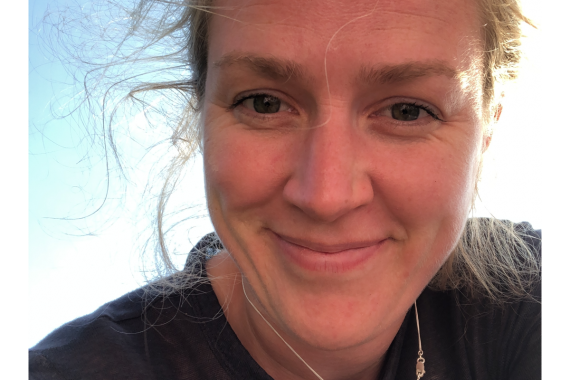Human touch medicine

Recently, access to general practice has been scrutinised in the media, with the papers rife with articles complaining about the scarcity of face-to-face appointments for patients. In October, NHS England and NHS Improvement also published their plan to improve access to general practice, pledging an extra £250 million to increase face to face appointments.
GPs have been demonised for the way appointments have been organised. The criticisms need to stop. We all need to pause and reflect on how we got here, why systems have evolved, and what’s led to the changes we’ve seen.
The pandemic altered working practices overnight. In those early Covid days, clinicians grappled to learn a whole new way of working, assessing patients over the phone, so we could continue to provide a robust service to our patients.
Let’s not forget those were scary, difficult times, even though GPs are experts in managing uncertainty. Every day, we sift through hundreds of symptoms, signs and patient concerns, evaluating and analysing to ensure appropriate diagnosis and treatment for those we care for.
Without warning, our risk calculators were recalibrated as one of our most valuable assessment tools was removed and we were blinded. We had no choice but to adapt.
With time and increased confidence, it became clear that some problems can be managed successfully over the phone and we became more comfortable clinically in our evolved role.
General practice, for those working in it, is unrecognisable to what it was. Quite frankly, it’s not the job that most of us signed up for. The Covid crisis has undoubtedly expedited change, but the changes in working practices were sadly inevitable and necessary.
The demand on the GP service is no longer conducive to purely face-to-face consultations. Purely in a practical sense, we as a society cannot have it both ways. It’s not possible to provide face-to-face engagement to all, when patient demand and Government pressure to provide services have never been greater.
There aren’t enough clinicians for this luxury, and it leaves no time to deal with the endless other tasks – handling online queries, filing blood results, reading letters, medicines management, referrals, writing reports, and on and on.
The underlying problem is that GP workload has no cap on it. The expectation is that an infinite number of issues should all be dealt with in the same efficient, professional way when the resources are finite. This is unsustainable.
The decisions about working practices are survival-based, and the public need to know that doctors too mourned for the end of in-person consultations as our standard. I loved the connection, the jokes, the kids climbing on the examination couch, the unexpected kisses from grateful older ladies and the chance to sit and look people in the eye as they shared their deepest truths.
I missed all those little, vital, life-affirming valuable moments. These occasions were the things that made the workload and pressures of work worthwhile on many days.
In the interests of full disclosure though, I have to admit that I didn’t miss it entirely. I didn’t miss the pressure of knowing that a queue of people were waiting to be seen – a queue that lengthened as the day went on and as I gave everyone the time they needed. I hated that.
Having that removed felt like a gift and reduced my anxiety levels significantly. On reflection though, I wouldn’t choose the new telephone-first triage system, but I think it makes surviving a working day in GP more possible in the current climate.
‘Our hands brushed together as I offered you a seat.
Before, it would have barely registered.
Normal.
An accidental nothing.
Today, in this moment, I am consumed by the fleeting touch;
the awkwardness of your naked flesh on mine.
This human need, now illicit and dangerous, still holds a powerful magic.
I feel time slow down as I grieve the familiarity of my ignited senses.
A memory of a time when hands were for holding and the warmth of my hand and its reassuring squeeze were the currency of my day.’
Dr Lisa Finnikin recently stopped working as a salaried GP in Sutton Coldfield
Related Articles
READERS' COMMENTS [1]
Please note, only GPs are permitted to add comments to articles










A new MRCGP question for the future of medical consumerism:
What % of GP consultations will end in normal tests, trivial explanation and no significant diagnosis or one that is benign and self-limiting:
10%
50%
90%